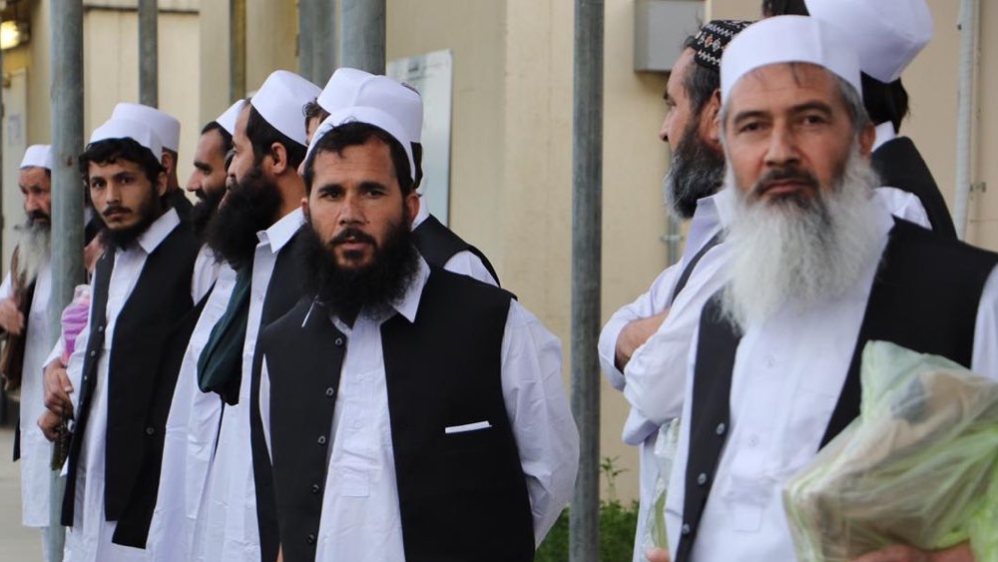
The Taliban accused the Afghan government of recovering previously released prisoners from its ranks, an accusation rejected by the Afghan authorities.
The government has released more than 4,000 Taliban fighters, while the group has released nearly 700 prisoners under an agreement between the United States and the Taliban that aims to pave the way for peace talks between the Afghans.
Suhail Shaheen, a Taliban spokesman at his Doha office, wrote on Twitter on Saturday that the Afghan intelligence agency, the National Intelligence Directorate, had carried out surprise operations against the freed fighters.
He said the administration in Kabul “would take responsibility for the consequences” if the alleged arrests were not stopped.
Shaheen also said that the released prisoners had adhered to the Afghan government’s instructions to stay home and not return to the battlefields.
But a spokesman for Afghanistan’s National Security Council adviser Javid Faisal said Sunday that several released prisoners have returned to the battlefields.
Faisal also rejected the Taliban’s claims that there were operations to re-arrest the released prisoners.
‘Worst approach’
Meanwhile, the US State Department in a statement said on Saturday that its envoy for Afghan reconciliation, Zalmay Khalilzad, was on his way to visit Doha and Kabul and pressure parties on “the final exchange of prisoners and the reduction of the violence”.
The United States is withdrawing its troops from Afghanistan under the agreement with the Taliban reached in February. Khalilzad’s task is to try to bring all the stakeholders in Afghanistan to the table.
Their journey comes amid resistance from the Afghan government to free some 600 remaining Taliban prisoners and an escalation of violence by the Taliban.
On Saturday night, two car bombs in a southern Afghanistan province left two soldiers dead and wounded three, provincial spokesman Omar Zwak said.
The Afghan government said the Taliban’s use of violence to gain more in the talks was the “worst approach” chosen by the armed group.
UNSC report
Meanwhile, the Taliban criticized a report by the UN Security Council (PDF), published on June 2, highlighting the factors that contribute to the fragility of the agreement between the United States and the Taliban.
“Member states of the security council must also not be victims of false intelligence or give credit to information from anti-peace elements seeking to continue the war in Afghanistan,” Taliban spokesman Zabihullah Mujahid said in a statement.
The most notable finding in the 28-page report was the Taliban’s alleged links to al-Qaeda in Afghanistan.
“Relations between the Taliban, especially the Haqqani network … and al-Qaeda remain close, based on friendship, a history of shared struggle, ideological sympathy, and mixed marriages,” the report said.
“The Taliban regularly consulted with al-Qaeda during negotiations with the United States and offered assurances that it would honor its historical ties.”
But Mujahid noted that al-Qaeda fighters found “safe areas in their own countries and they all left our country to go to their own countries.”
The report also said there are divisions reported within the Taliban’s political office, a claim that Mujahid described as “fabrication.”
“We have demonstrated the unity of our ranks, so far no individual has rebelled and there is no evidence that anyone disobeys the leadership of the Islamic Emirate or joins another group,” he said.
SOURCE:
Al Jazeera and news agencies
.